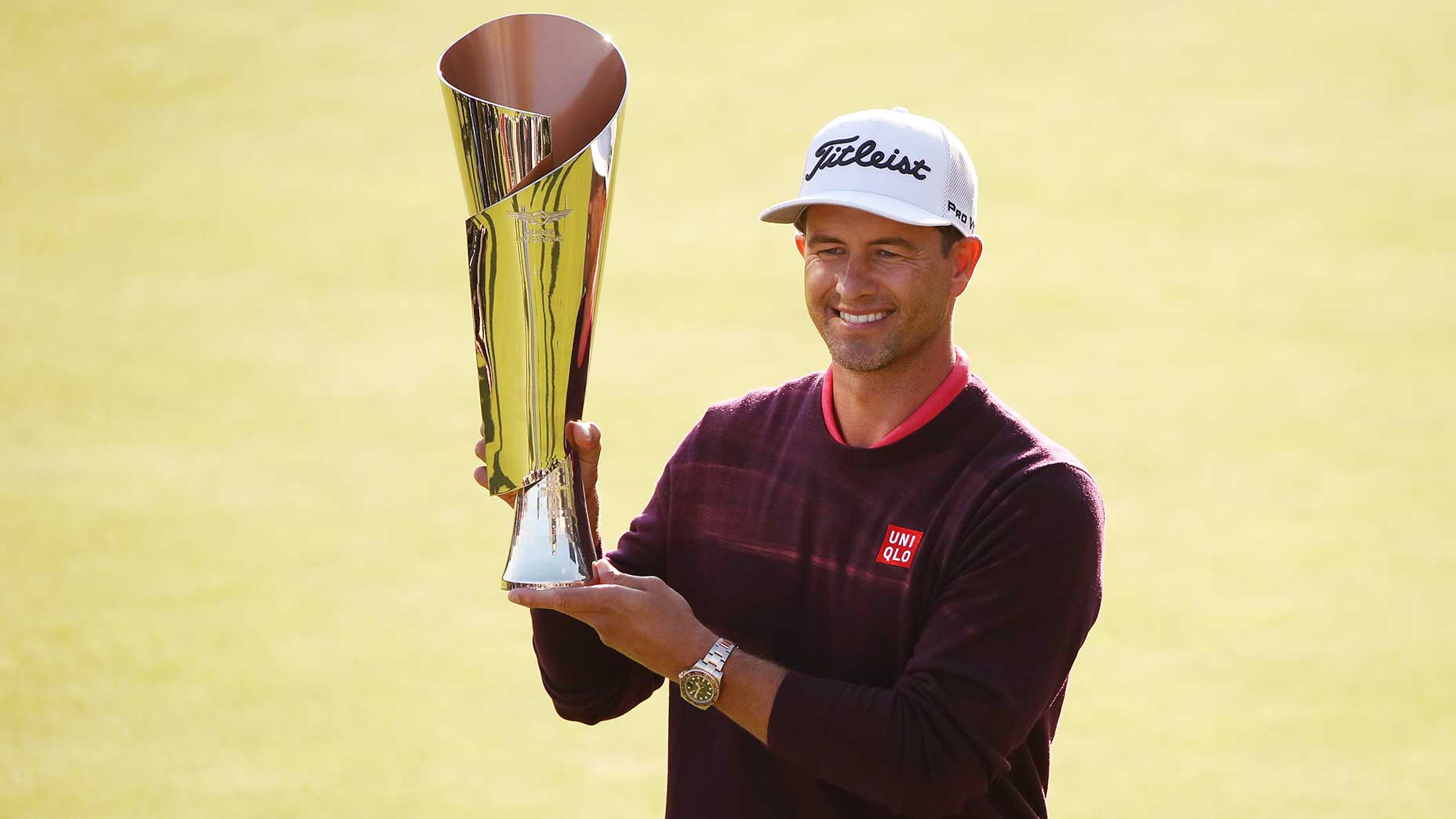Should PGA Tour winners cash even bigger checks? Adam Scott thinks it’s worth discussing. Or at least he was intrigued by the idea when a reporter brought it up during Scott’s Sony Open press conference on Tuesday.
The PGA Tour has long distributed 18 percent of its tournament purses to the winner in its typical 36-hole cut events. Second place usually takes 10-11 percent.
Over the years, total purses have increased, meaning the value of that 18-percent payout has increased, too, as have the sums for other finishes. But, as one reporter asked, with winning on Tour being so hard, should the 18 percent slice of the pie also get a bump?
“It’s a fine question to put forward,” Scott said. “Potentially you could have weighted the win and not put purses up, you know what I mean? You could give [the winner] 40 percent. Leave the purse the same size, but give the winner 40 percect of the total purse and cut everybody else and look for — reward excellence in a week.”
Scott added that the downside of this, however, would be that players who finish in the bottom of the top 10, for example, which is usually good for a hefty payday, might not like the winner-heavy distribution. He also said the strength of field could be a factor that might change the purse distribution. (For what it’s worth, LIV Golf, which has snagged players from the PGA Tour, paid out $4 million to its seven event winners in 2022, not including the team championship, from purses of $20 million, meaning winners took home 20% precent of the total purse.)
“I think what all of this is showing is like the traditional structures that we’ve had in pro golf, it’s probably time for a change,” he said, “and there has to be different ways to look at it.”
Jordan Spieth is also playing in Honolulu this week. He was asked the same question Scott was on Tuesday. While he said he wouldn’t be opposed to the winner’s share increasing “a couple points” — as long as it aligned with the World Ranking system and some other factors — he stopped short of agreeing with Scott about the 40 percent figure.
“I just think our sport, as much as I just said it’s so different winning and second and fourth, like it could be a bit frustrating where you could finish second but have outplayed first significantly because of the draw you were on,” Spieth said. “You hit a pin and the ball — there is so much in our sport that can be affected. … So from 20 [percent] to 12 versus 18 to 12 versus 40 to 15, it seems like that’s too big of a spread for the way our sport works. It’s not always an even playing field for four rounds.”
Spieth said that a bigger winner’s check, however, might not mean much to a lot of players coming down the stretch.
“I don’t remember ever contending, even my rookie year in an event, and thinking about the difference in the money in first and second ever coming down the stretch,” he said. “So does that add to it for, like, the fan watching on TV? Maybe. I guess. But you’re still just looking at who wins. You want to know who wins for the privilege of winning, not because of the difference in the paycheck. Until you get to the FedExCup. Then that’s the bigger play and that’s what’s selling there. But that’s tens of millions of dollars difference.
“I think that when you look, I guess last week is probably a good way to look at it on how we’re looking going forward with elevated events. There is a significant difference there in the money, enough to where someone might be thinking about it a little, and certainly the public is looking at it differently than when it was a million and 700 grand or 750 grand to 2.7 to whatever second was. … And I’m going back to rookie year, and I may be so wrong compared to other guys, but I don’t remember ever being like, Oh, if I win this playoff that’s a difference in — I know exactly what that is, it’s $700,000 difference. That’s the last thing you should be thinking about I think as a competitor.”
